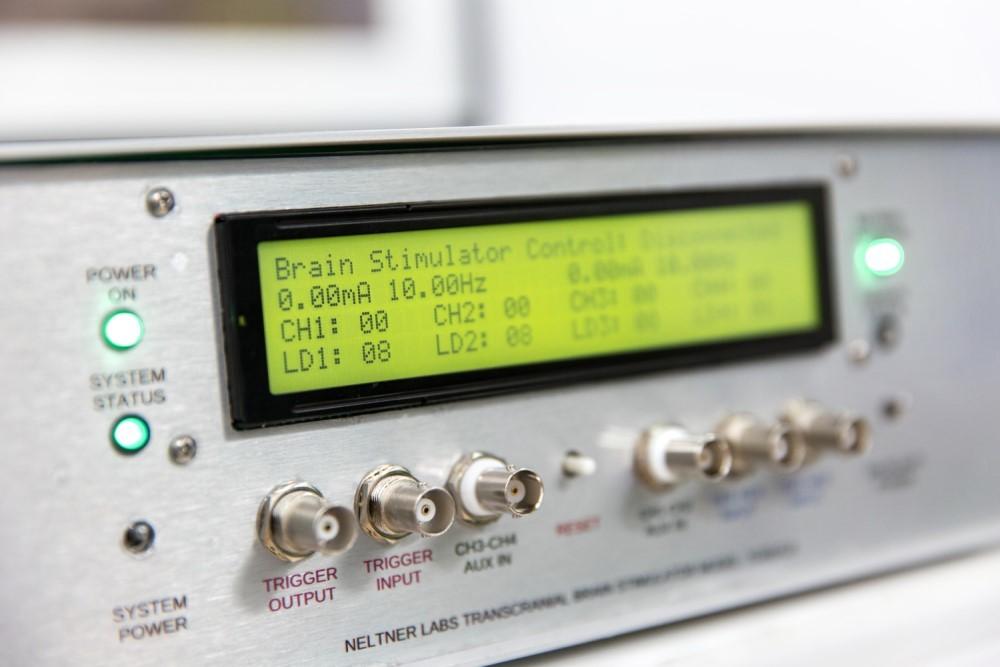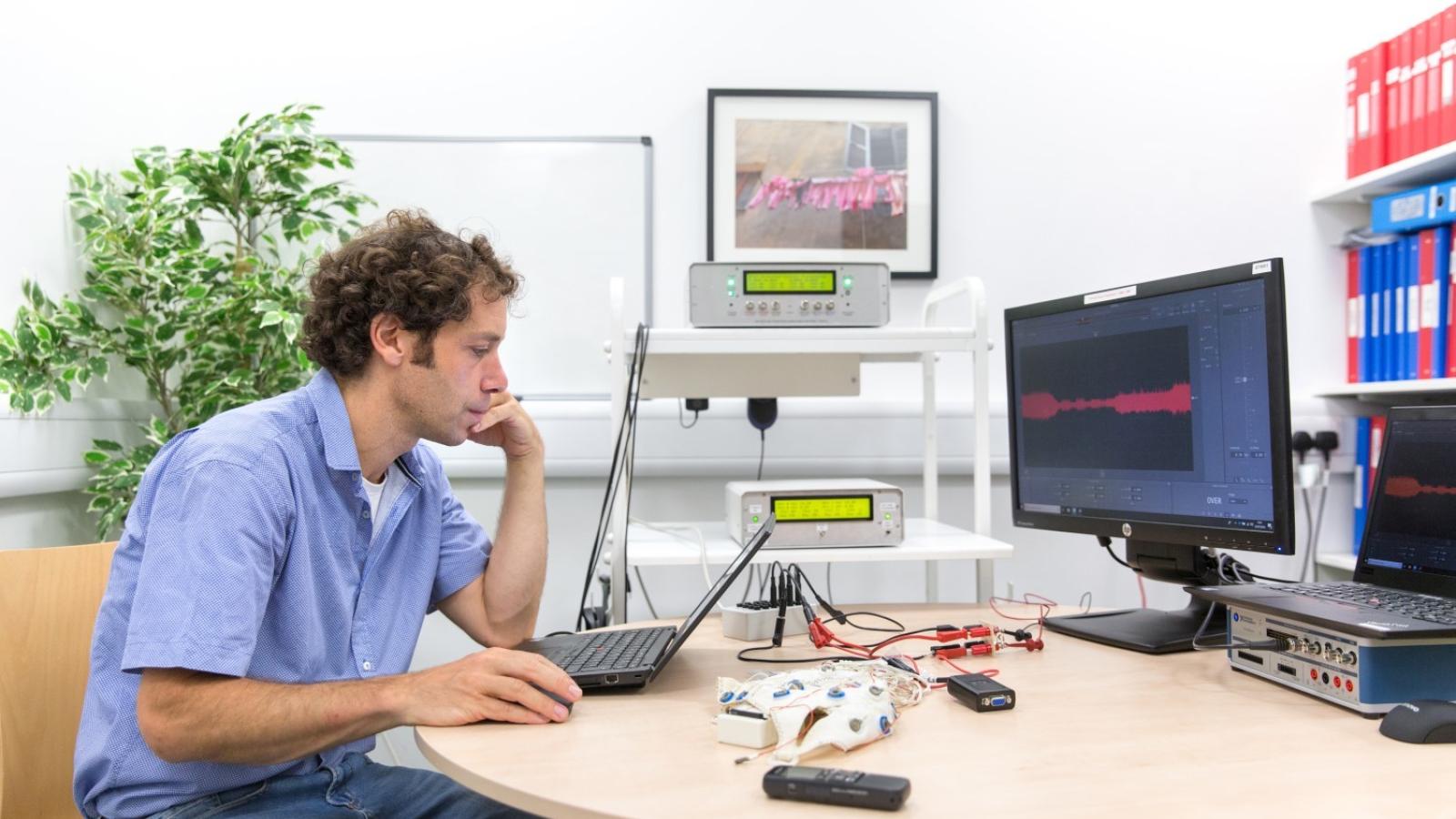A team of researchers, led by Group Leader Dr Nir Grossman, UK DRI at Imperial College London, have been awarded a Transformative Healthcare Technologies Award from the Engineering and Physical Sciences Research Council (EPSRC). These funds will help with development and testing of non-invasive electrical deep brain stimulation technology, a potentially new and innovative way to treat Alzheimer’s disease.
Deep brain regions, such as the hippocampus, are affected during the earliest stages of Alzheimer’s disease, causing bioenergetic and metabolic dysfunction in the neurons. Dr Grossman aims to improve the function of these cells using a type of brain stimulation called temporal interference. Unlike other methods of deep brain stimulation, which require electrodes to be inserted into the brain, temporal interference stimulation is non-invasive. It works by applying two electric fields of slightly different frequencies to the brain from electrodes attached to the scalp. The electric fields can be directed so that they overlap at a particular region, such as the hippocampus, and the fluctuations of the combined currents are able to stimulate the neurons there.
The EPSRC Transformative Healthcare Technologies Award will allow Dr Grossman to further develop the technology behind temporal interference and test its therapeutic potential in animal models. The team will begin by manufacturing specialist hardware to increase efficiency of the electrical fields required before applying the technology to the hippocampus of a mouse model of Alzheimer’s disease. Before temporal interference is used for preclinical studies, the design of the technology will also be discussed with people living with Alzheimer’s disease, as well as carers and health professionals, to ensure that it is suitable to be worn day-to-day. The award for this first stage of the project is ~£300,000 for 15 months. If successful with this stage, Dr Grossman will receive the second round of funding (~£5 million over 4 years) to establish preclinical evidence of the benefit of temporal interference in people living with Alzheimer’s disease.

Upon receiving the award, Dr Grossman said:
“We are very excited about this EPSRC award that can allow us for the first time to systematically address the key engineering challenges needed to translate our temporal interference concept to a powerful non-invasive deep brain stimulation technology that is used around the world.”
Dr Grossman previously received the 2018 Science & PINS Prize for Neuromodulation for pioneering the temporal interference method. To accelerate the application of this type of brain stimulation for people living with Alzheimer’s disease, he was then awarded $1.5 million by USA-based Alzheimer’s Association’s Part the Cloud fund.
With regards to how the technology will potentially benefit people with Alzheimer’s disease, Dr Grossman explained:
“The TI stimulation aims to restore physiological neural activity in the brain’s memory circuit in people with Alzheimer’s disease. Since we have not tested it yet in people with Alzheimer’s disease, it is difficult to say how it will help them. However, if our hypothesis is correct, we hope it will improve memory function and resilience to neurodegeneration.
We are starting the first study in people with Alzheimer’s disease this year and expect the outcome in about two years. If successful, we will follow up with more extensive studies that can take a few years and eventually support regulatory approval.”
Article published: 03 September 2021
Image credits: Thomas Angus, Imperial College London
